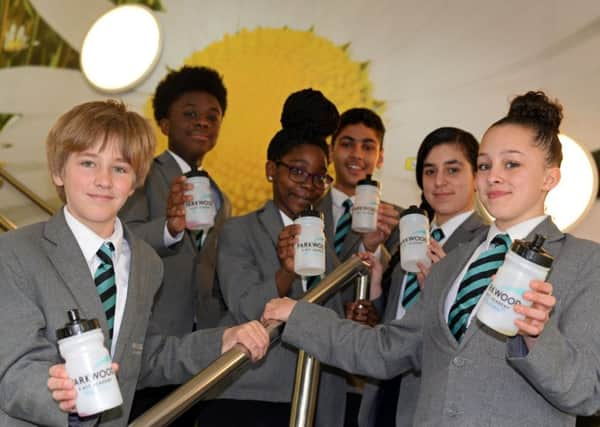The amount of waste from schools is '˜scandalous' and needs to change


And it is essential. Keeping students hydrated throughout the day is crucial for their ability to learn and remain alert at school. Topping up a water bottle at break or lunch – especially as the temperature climbs – is just as important as bringing sharpened pencils and a ruler.
What Parkwood has acknowledged is that there is too much waste at school. A large proportion of students buy a disposable plastic bottle at the canteen throughout the day.
Advertisement
Hide AdAdvertisement
Hide AdWith so many students doing this over so many days, Parkwood was creating a mountain of excess plastic.
Multiply this problem in Shirecliffe by all the schools across the country and you get a grim picture of schools dumping tonnes of plastic every day. And all this is taking place in a building where we are teaching young people to become more environmentally responsible for their actions.
Parkwood Academy has made a difficult decision here, one that is potentially unpopular with students and parents. After all, it’s another thing that kids have to remember, look after and can get in trouble for forgetting.
It’s a bold and brave decision and one which will surely be followed by other secondary schools across the city.
Advertisement
Hide AdAdvertisement
Hide AdParkwood is the first school in the city to jump on the tide moving against plastic waste, a movement that has gained so much speed following the second season of the BBC’s Blue Planet.
It should not be the last to introduce this innovative move and slash the amount of plastic schools are throwing away.
But there is a wider message for schools this week in the light of Parkwood’s plastic bottle ban – it’s that schools are simply not doing enough to be environmentally responsible.
Sheffield youngsters are taught about pollution, global warming, environmental destruction, the impact of melting icecaps and presented with a list of solutions that could alleviate the problem.
Advertisement
Hide AdAdvertisement
Hide AdMost GCSE students will be able to tell you what governments need to do to reduce the threat of global warming.
And yet many schools that arm children with this eco-information are not leading by example when it comes down to their own record.
The amount of waste that is not recycled at schools is simply scandalous.
Plastic is a major culprit. Thousands of bottles are simply chucked in the bin every day at Sheffield schools and there is a significant lack of recycling facilities presented as an option to students.
Advertisement
Hide AdAdvertisement
Hide AdWhen it comes to paper, the situation is just as bad. With photocopying bills sending budgets sky high, many schools are trying to cut down on the amount of A4 sheets handed out in classrooms but their use is unavoidable if effective teaching and learning is going to take place.
Unbelievably, paper recycling facilities at schools where I have taught have been few and far between. Used or unwanted sheets of paper are discarded in the bin with waste heading for the incinerator or landfill.
Moved to introduce recycling schemes have been met with resistance by school leaders because of the sheer volume of resources that would be needed to organise an effective scheme.
Ideally, it needs paper recycling boxes in each and every room, which are regularly collected and taken to a central disposal area where the waste is then collected by a recycling company.
Advertisement
Hide AdAdvertisement
Hide AdMany schools have nothing that even closely resembles this kind of efficient scheme.
It means that schools in the city are responsible for discarding tonnes or paper and plastic waste that could be recycled, and more importantly it means that these established are not practising what they preach.
The move at Parkwood Academy to ban disposable plastic bottles is fantastic and I raise a reusable glass to the teachers who have championed the drive.
Over the coming weeks, I would like to see more of our schools handing out reusable bottles to our children. This part has been done before many times, but the real bottle showed by Parkwood is that other plastic drinking tools are now banned and the new bottles are part of the equipment check.
This is what makes Parkwood stand out as a beacon of hope in the fight against plastic waste.